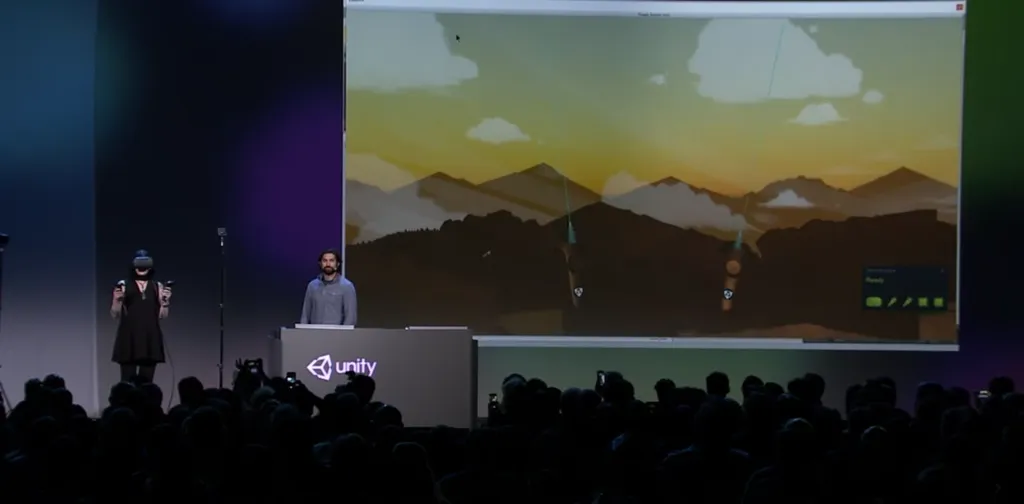Update: Editor VR is now available to download for free as is an Editor VR Asset Pack. Unity says that its current uses include “laying out a scene in VR”, “Making tweaks to existing VR scenes”, and “Making adjustments to components using the Inspector workspace”. The company also provided an extensive starters guide to help developers get to grips with the toolkit.
Original story: Unity was reluctant to put a final date on the launch of Editor VR when it was last shown at Unite 2016 in November, but we now know it will be with us very, very soon.
Timoni West, Principal Designer at the company and one of Editor VR’s biggest evangelists, confirmed that an “experimental build” of the tool kit will be launching on December 15th. This was following another on-stage demonstration of the kit, which lets you develop games from inside the HTC Vive and Oculus Rift headsets, at the 2016 Vision Summit Asia in Beijing, China.
And to add to that…EVR’s first experimental build will be released ➡️DECEMBER 15!⬅️ https://t.co/60q50WUlyx
— timoni west (@timoni) December 14, 2016
Speaking to UploadVR, Unity confirmed that the release will feature everything that’s been demonstrated on-stage at various conferences this year and will arrive as a custom build of Unity 5.4. It will be released for free via GitHub, so anyone can sample it.
Editor VR is designed to make developing both VR and non-VR content much easier by allowing creators to make games without needing to remove their headset. It uses the Vive Wands and Oculus Touch controllers for accurate, intuitive control, allowing you to access traditional settings via 3D windows and also take advantage of new ones like faster object placement. All of the features we’ve seen on-stage so far are expected to be included in the experimental release, though we’ve reached out to Unity to confirm this.
The last time we saw Editor VR it had come a surprisingly long way from its humble beginnings at the start of 2016. One major new editions was Tools, which takes creative software developed by other teams and turns them into new features for you to use to build your games. Right now it supports a handful of apps including the brilliant Tvori, but imagine one day making an amazing sculpture in Tilt Brush and then bringing it into your game world as an interactive item.
Unity sees VR development going down this path in the future. It doesn’t know what makes the perfect VR creation tool, so it’s letting everyone contribute their own ideas via Tools and seeing what sticks. The result may well be a Unity engine that one day allows just about anyone to develop their own content with the help of VR.


























